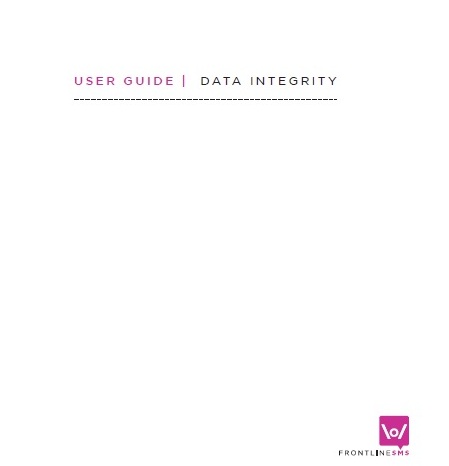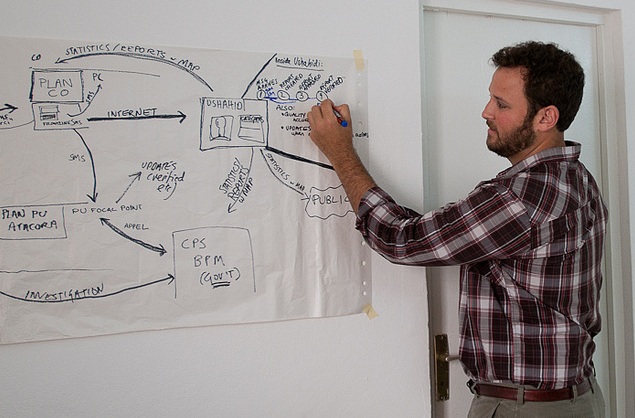There is no perfect set of data governance principles or practices, yet - and like most governance, we are a long way from realizing our espoused ideals. But, when policymakers and service providers and frontline technologists work together to advance the common goals of realizing our values in digital ecosystems, we bend the arc just a little closer to justice.
M4Data: FrontlineSMS Launches Data Integrity User Guide
By Cathryn Paine
 We were excited to join colleagues and friends in Washington, DC, on Tuesday 9th August to release the first edition of our User Guide on Data Integrity, a tool that will help FrontlineSMS users around the world better understand the flow of information into and out of the platform, the risks and vulnerabilities to that data, and simple ways they can mitigate those risks.
We were excited to join colleagues and friends in Washington, DC, on Tuesday 9th August to release the first edition of our User Guide on Data Integrity, a tool that will help FrontlineSMS users around the world better understand the flow of information into and out of the platform, the risks and vulnerabilities to that data, and simple ways they can mitigate those risks.
To kick off the discussion around the new guide, we hosted a panel discussion at Johns Hopkins’ School of Advanced International Studies, where FrontlineSMS' Sean McDonald joined Jon Gosier of metaLayer, Development Seed’s Paul Goodman, and Internews Vice President for New Media Kathleen Reen, who moderated the event. This research effort, based on FrontlineSMS user input and research by Kristina Lugo and Carol Waters, focused not on mobile system security, a critical issue better addressed by others, but more on the ways that contextualized program design and implementation can improve data quality and reduce user risk. Above all, we learned through the process, context is key. Understanding the needs and norms of the target population, and the goals of the project itself, is vital in determining the proper tools and approach to designing a FrontlineSMS workflow that can achieve those goals.
The panel discussion centered on these key points, especially the role that stakeholders play in the reliability and integrity of project data. Issues from misinterpretation, to unconscious bias, to lack of corroboration can creep into an improperly designed data collection effort, polluting the entire dataset in the process. To mitigate these threats, Jon emphasized focusing on localization and usability in project design—understanding the users or beneficiaries of a project is the best way to minimize human error and maximize data integrity.
Paul contextualized these points with insights from mobile projects in Haiti and Benin, focusing on the process of implementing new technologies—from design to training to implementation. Particularly, the panel discussion focused on assuming that program data would be made public, in an effort to design projects that achieve important goals while minimizing risks associated with data sharing or system compromise.
Throughout the conversation, the discussion kept coming back to the importance of user-focused, context-aware approaches and resources in ICT projects. No matter how complicated the technology, an informed and engaged community of project staff and participants is really the best tool for safeguarding quality data. All in all, a great discussion that we hope to keep going through the forum and ongoing interactions!
You can now download the FrontlineSMS User Guide on Data Integrity from our website here.



